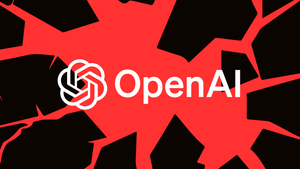German collecting society GEMA has scored a big win in its legal battle with ChatGPT owner OpenAI, with a court in Munich ruling that the AI company did infringe the copyrights of the society’s members by training its AI model on their lyrics without permission.
The “landmark ruling”, clarifies “key legal questions concerning the way new technology interacts with European copyright law”, says GEMA General Counsel Kai Welp . The court’s ruling, he adds, “represents a milestone on the way to obtaining fair remuneration for authors and creators throughout Europe”.
GEMA CEO Tobias Holzmüller adds: “The internet is not some kind of self-service buffet and creative achievements by human beings are not simply templates for use free of charge. Today, we have set a precedent that both protects and clarifies the rights of creative copyright holders: operators of AI tools such as ChatGPT must also comply with copyright law”.
Many of the big legal battles between copyright owners, including music companies, and AI businesses are being pursued through the courts in the US. With that in mind, GEMA launched this litigation against OpenAI - as well as another lawsuit targeting Suno - in order to confirm the copyright obligations of AI companies under European law.
Speaking to CMU, composer and AI expert Ed Newton-Rex, founder of the Fairly Trained initiative, who has been following the legal battles on both sides of the Atlantic, says that today’s ruling in the GEMA v OpenAI case is “a landmark decision on the side of fairness and common sense”.
Many AI companies, of course, argue that they can legally make use of existing works when training generative AI models without getting permission from the relevant creators or copyright owners.
The music industry strongly disagrees with that position, as does Newton-Rex, who has been very vocal on this issue, especially since quitting his role as Head Of Audio at Stability AI over its own position on matters relating to copyright.
Newton-Rex reiterated his position earlier today, saying that “AI companies must license their training data - in the eyes of the public and, as confirmed today, in the eyes of the law”.
In the US, AI companies argue that model training is covered by the ‘fair use’ principle in American copyright law, which means they don’t need the permission of rights owners to use copyright protected works for training. In other countries, AI developers generally rely on more specific copyright exceptions relating to text and data mining.
While EU law does provide a text and data mining exception, rights owners can opt out of it, and OpenAI was not able to rely on that exception in the GEMA litigation.
The collecting society explains that even with the “legal authorisation for what is known as text and data mining” provided by the copyright exception within EU law, that “does not in any way justify the storage and output of copyright-protected song lyrics”.
Because, says GEMA, ChatGPT was spitting out existing lyrics represented by the society in response to users’ prompts, something that the court confirmed “gives rise to a licensing obligation”. Because OpenAI did not have a licence, the company is liable for copyright infringement, and will now have to pay damages to GEMA, although the judge hasn't yet indicated how big those damages might be.
Although damages are always a nice thing to receive, GEMA’s primary motivation in bringing the lawsuit is to pressure Open AI - and all its rivals in the AI market - to come to the negotiating table to secure licensing deals. In his response to today’s ruling, General Counsel Welp insists that “GEMA’s licensing model” already offers a solution.
However, he goes on, “the legal framework must also be improved in favour of creative artists, so that the acquisition of licences by companies becomes the rule. We will continue to work towards this goal”.
Of course, although today’s ruling is a big win for GEMA, legal controversies are rarely solved by initial rulings in the courts. Open AI is likely to appeal through the German courts, and key legal questions relating to the case could ultimately end up being decided by the European Union courts.
A spokesperson told Reuters that the AI company is “considering next steps”, while also seeking to play down today’s judgement, which technically relates to specific lyrics that GEMA claimed had been copied without licence.
“The decision is for a limited set of lyrics”, the OpenAI spokesperson added, “and does not impact the millions of people, businesses and developers in Germany that use our technology every day”. Unless, of course, they are using it to churn out lots of German lyrics.

